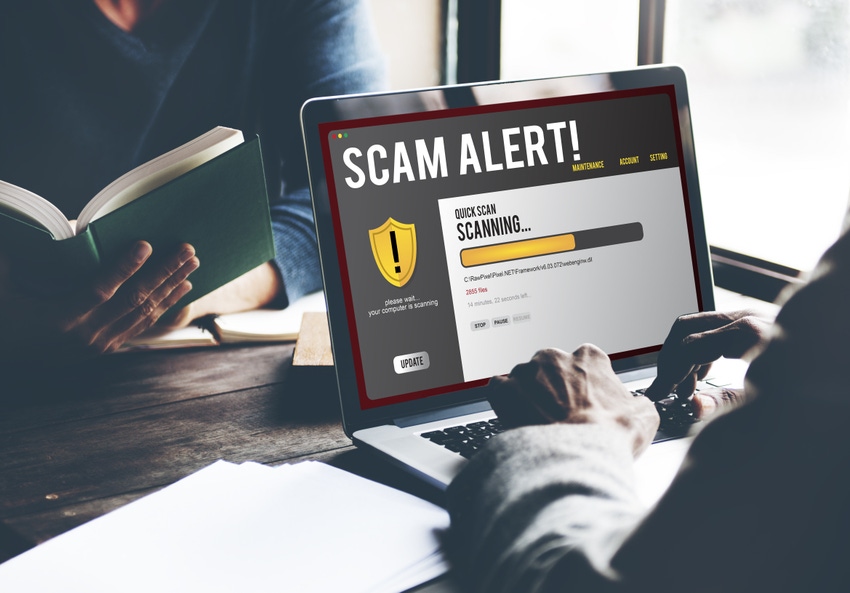Phony-looking letters demanding cash to forestall the filing of a lawsuit that have come from an apparently fictitious law firm have been showing up in the natural products industry.

Phony-looking demand letters that could have been generated by an artificial intelligence platform are turning up in the natural products industry, sources have told Natural Products Insider.
The demand letters claim that a client of a supposed law firm named Goldbaum & Hershkowitz suffered food poisoning when consuming a product made by the company that receives the letter.
Clunky prose smacks of AI
Sources that alerted Natural Products Insider to the incident noted that some of the language used in the letters themselves and on the website of the supposed law firm resembles the current level of prose generated by AI platforms. The copy is replete with odd turns of phrase and small grammatical errors.
When trying to access the website for the supposed firm, a security alert is generated, depending on the security protocols in place for certain web browsers. The alert brands the website as a potential scam site.
The website lists several employees for the firm, which claims to be based at a tony address in Beverly Hills, Calif. But only one of those has a biography attached.
A spokesperson for the management of the office building at the purported address of the firm, 9440 S. Santa Monica Blvd. in Beverley Hills, confirmed in a phone call with Natural Products Insider that no business by that name leases space in the building.
The lone biography is for Stephen Goldbaum, the supposed founder of the firm. The biography notes Goldbaum received “his Bachelors from University California, Berkeley [sic] in 2000 and his Masters from top-rated University of Michigan in 2003,” but mentions no law school education.
No lawyer named Stephen Goldbaum is currently listed as an attorney in California, according to a search conducted on the website of the State Bar of California.
A Google reverse image search using the headshot of Stephen Goldbaum yields as the closest match a photo associated with an obituary of a man who died in Lawrence, Kansas in 2016. It’s not a perfect match, but the differences easily could have been inserted using a photo editing program, like Photoshop.
In addition, the phone number listed on the website has a message that tells callers that the phone line is down for maintenance. That message has apparently been playing for days.
Laughable amount of demand
Then there’s the $500 demand made on behalf of the theoretical client, Sam Sharp. That is meant to “address the physical and emotion suffering he experienced due to consuming your product, as well as the financial losses he incurred due to the extended period of absence from his professional duties.”
Add in the notation in the letters that companies can send their payments directly to Sam Sharp, the client named in the letter, via an enclosed, self-addressed, stamped envelope, rather than sending payment to the law firm.
Attorney Justin Prochnow, a shareholder in the firm Greenberg Traurig, said in addition to the clunky language of both the website and the demand letter itself, even having a dollar amount specified in an initial demand letter is highly unusual.
The approach was crude, Prochnow said. But he speculated the perpetrators might just be playing a numbers game. The amount demanded was so small that a few companies might just cut a check rather than bother with contacting their lawyers first.
“If they send out thousands of letters, and a thousand people respond, that $500,000,” he said.
Talk to counsel first
“A little bit of sleuthing helped us to quickly identify these as scams for our clients, and as an extra step to protect the industry, we filed notices with the California Bar and Attorney General, who we hope will take action,” said Ivan Wasserman, a partner in the firm Amin Talati Wasserman. “The letters serve as a reminder to remain hypervigilant as technology is enabling scammers to get ever more creative. Always check with counsel whenever receiving a threat of legal action of any kind rather than just paying the demand—no matter how small the amount.”
Prochnow said one school of thought about these kinds of scams is to keep them quiet, because laying out the details of the approach and the tips that might identify such a letter as a phony demand only serves to help the scammers refine their techniques.
“It is always an interesting question between alerting people to what is happening and educating the people who are doing it,” he concluded. “I always err on the side of education. I think it’s better for companies to have that information and prepare for it.”
Both the California State Bar Association and the California Attorney General’s office were contacted for comment for this article. Neither responded in time for publication.
About the Author(s)
You May Also Like






.png?width=800&auto=webp&quality=80&disable=upscale)